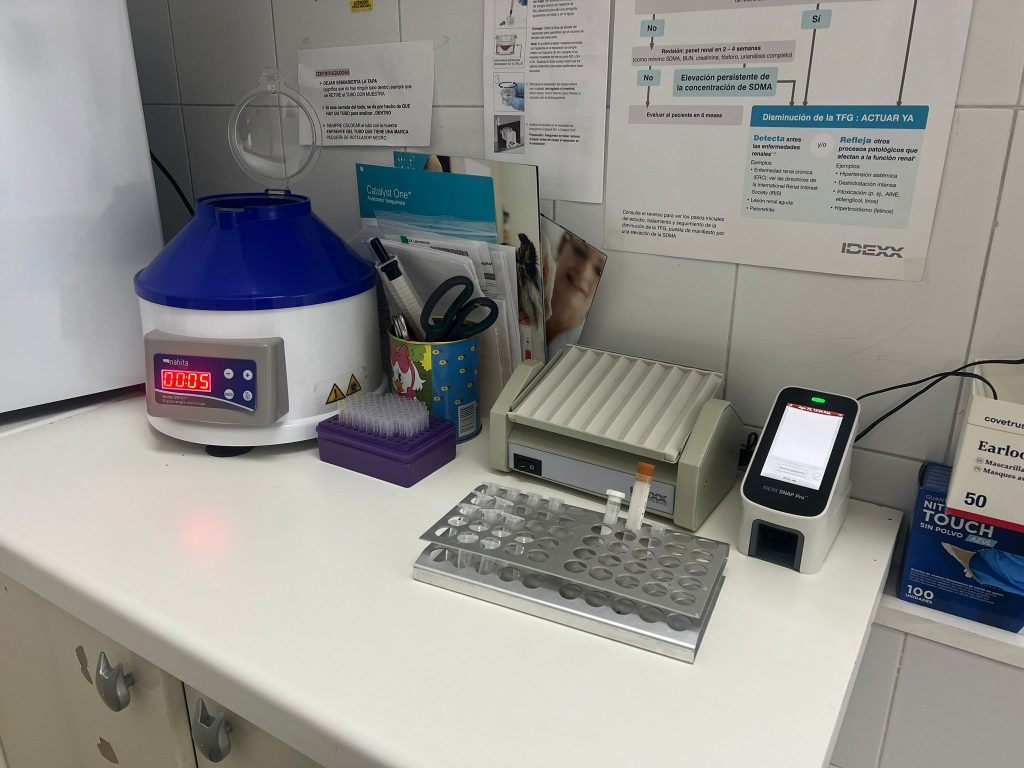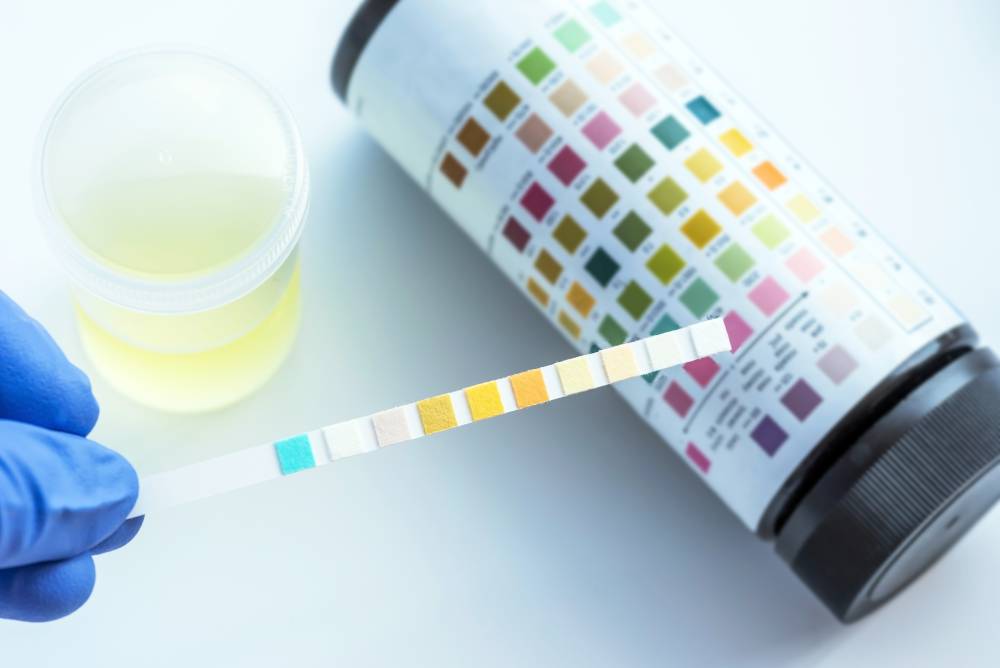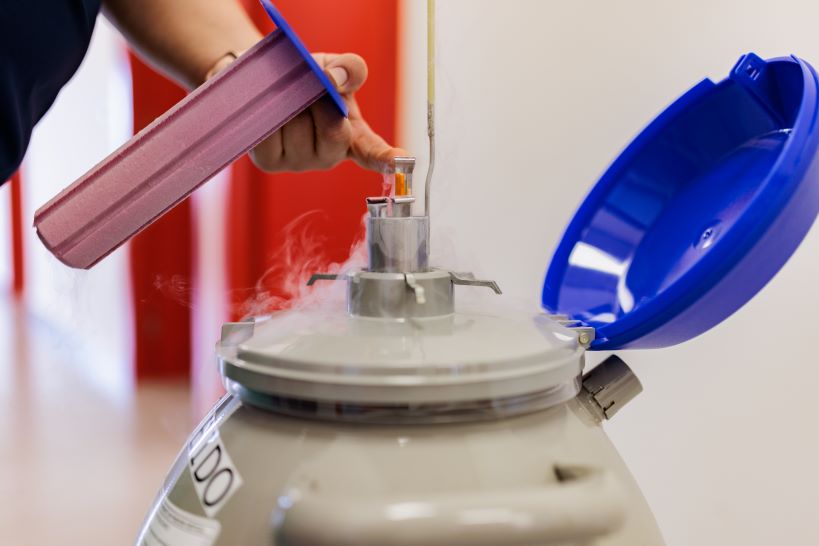Blood Tests
One of the most common tests we perform at Mundocan Veterinary Clinic is a complete blood count (CBC) that analyzes the numbers and appearance of blood cells. The CBC is important in the diagnosis and monitoring of disease and infection, and can indicate if your pet has dehydration, diarrhea, or anemia, for example. The results of the tests can tell us a lot about the way your pet’s body is functioning and suggest possible health problems.
Stool Sample Tests
Stool samples may be collected at home before an appointment, or they may be collected by one of our veterinarians in our Madrid clinic. The material is then examined under a microscope. We can detect the presence of the cysts of parasites such as Giardia and Cryptosporidium or eggs of other parasites, such as roundworms, hookworms, and tapeworms. Larva, adult worms, or tapeworm segments may also be observed.


Urine Tests
Analysis of urine samples (urinalysis) is important for detecting
various types of urinary tract infection, kidney disease, or internal
bleeding. The sample should be analyzed immediately after
collection, since urine left at room or higher temperature will
degrade, and test results will not be accurate. The tests usually
carried out on urine samples include evaluating the appearance,
chemistry, and sediment. Normal urine is yellow or amber in
colour and should be transparent or clear. The presence of
diseases or infections may change the colour or clarity.
Hormone Tests
The excess or lack of certain hormones in animals can trigger different diseases such as diabetes, Cushing’s syndrome, Addison’s, hyperthyroidism, etc. For this reason, we can use a blood sample processed in our laboratory to identify the level of these hormones in their bodies.
Cytology
Cytology is a diagnostic test used by the veterinarians at Mundocan Veterinary Clinic to detect abnormalities or lesions in cells. To do this, we need to take a sample of the lesion by needle aspiration or by imprinting the lesion, apply staining techniques to the sample and analyse it under a microscope.
Cytology allows us to:
- Detect whether a lesion is tumoural or not.
- Classify whether neoplasms or tumours are benign or malignant.
- Determine whether a medical or surgical treatment should be used.



